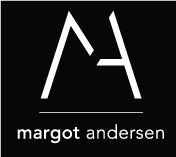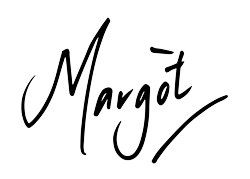“I have no special talents. I am just passionately curious.” – Albert Einstein
The age-old adage, “curiosity killed the cat” seems to suggest that inquisitiveness is a dangerous thing; that it leads us down a path of danger, that it is fraught with hurdles and is an unnecessary use of time.
Curiosity, however, is an essential ingredient to great leadership and all too often, we fall into a pattern of accepting things at face value, perhaps because sometimes it seems easier or more convenient to continue as we do, particularly when nothing in particular may need fixing.
Science fiction author C. J. Cherryh famously said, “ignorance killed the cat; curiosity was framed!” Her statement could not be more accurate. A lack of awareness can mean we begin to accept things as they are and can quickly become stuck in our ways of working and doing business. Momentum is stalled and the ideas and innovation that can help to drive businesses stagnate.
So, it should come as no surprise that truly great leaders are also curious leaders.
They seem to be in possession of an extraordinary curiosity for exploring ‘the new’; for learning and discovery; for the possibility of what could be and not merely what is. They are motivated by the desire to improve and better their own lives, careers and the organisations that they lead. They are not satisfied with maintaining the status quo.
Being curious does not mean being distracted. In our hyper-connected world it is a challenge not to become overwhelmed and distracted with the world of information that is available at your fingertips. The ability to effectively channel your curiosity to the things that matter is what defines a ‘healthy curiosity’ and sets the truly successful people apart.
So why is curiosity important? Many articles highlight the value it brings, including helping us to overcome our fears, to building a greater sense of self-awareness and an ongoing cycle of learning. In thinking with curiosity, doing so also acts as a great source of influence, inspiration and motivation and leads to greater agility, innovation and creativity. Additionally, it helps us to maintain and gain clarity, relevance and purpose in what we do.
Curiosity showcases your personal brilliance: Asking why or how helps us clarify situations and issues. It encourages us to adopt a proactive solution-oriented style of thinking rather than a reactive problematic view of the world.
With that in mind, how can we actively build curiosity in our own lives each day? What follows are five key actions you can take to help cultivate a greater sense of curiosity.
Commit to an open mind: Not only do we need to commit to learning and embracing the new, but also to unlearning and relearning. Our ability to change our view on the way that things have always been done and embrace new ways can be a continual challenge, however a curious mindset will actively support the embracing not only of new ideas but also new ways to approach things.
Ask questions – lots of them: Your outcomes and direction are greatly determined by the quality of the questions you ask yourself and those around you. Seeking understanding and not merely responses will help create and open up new opportunities, solutions and pathways.
Don’t accept the status quo: Challenge the norm – ask why? How many times have we heard the response ‘because that’s the way we’ve always done it’ or ‘that’s just the way we do things around here’ only to discover that the blind acceptance of the status quo is what is holding us back from achieving great things. Creating a safe environment that encourages exploration of the ‘why’ is a key part of developing critical thinking and action-oriented outcomes.
Adopt a healthy regard for learning: Successful individuals and great leaders are never satisfied with what they know. They advocate the need for lifelong learning and recognise that learning does not stop with the acquisition of a certain role or title. Seeing learning as fun and a source of motivation and knowledge will make you naturally want to dig deeper.
Collaborate: None of us have all the answers. Seeking out new relationships and engaging with those around you will ensure that the ‘ideas bank’ remains a rich resource to tap into. Not only does it make what we do more rewarding, but it also provides you with fresh thinking and different perspectives.
We all need to encourage and celebrate curiosity. We need it for both our own careers and the businesses that we lead. We need to see our organisations filled with people who know how to ask questions and who are experienced in finding answers and creating solutions; people who aren’t’ afraid to fall or fail for they know that they have the ability and confidence to stand and continue seeking out the best possible path forward. People who don’t want to settle for ‘what is’ but want to explore the ‘what if’ moments both for themselves and the organisations they work for.
Seeking out the world of possibility and not just accepting the world of ‘what is’ brings so many rich rewards and much fulfillment. Can you think of a recent situation in which your curiosity made a difference, or made a positive impact on your work?


